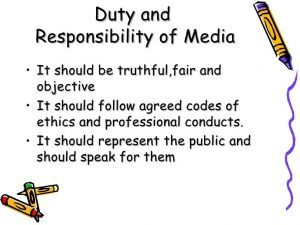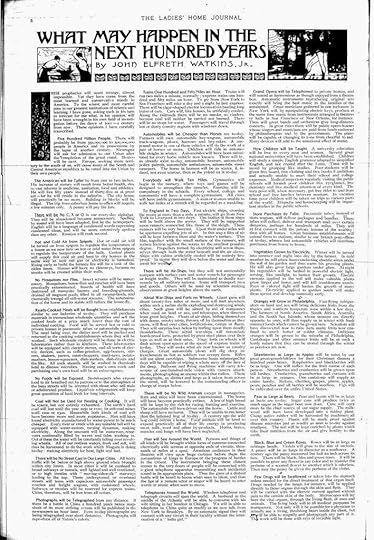Ronald E. Yates's Blog, page 43
January 12, 2022
This is NOT My America
The other day I was taking stock of what is going on in our country and I realized that this is no longer the country in which I was born and reared.
It is an alien place that seems to have embraced George Orwell’s vision of nationhood—a place filled with contradictions, lies, and an increasingly totalitarian gang of ruling elites in Washington who govern via propaganda, surveillance, and censorship.
In Orwell’s dystopian book “1984,” history is manipulated and revised. Speech and opinions are controlled, as are minds.
“Doublethink” is used in the fictional nation of Oceania to alter the reasonable and cogent perceptions of the population. In “1984,” party slogans such as “WAR IS PEACE,” “FREEDOM IS SLAVERY,” and “IGNORANCE IS STRENGTH,” are examples of cognitive dissonance or the act of thinking two contradictory things at once—or believing that both things are true.
In today’s America, Big Tech can expel you from their social media platforms or you can be “canceled” if you dare to express an opinion that contradicts the accepted orthodoxy and narrative of the nation’s media and socialist politicians.
Consider how the elites in Washington are mandating how we think about COVID-19 or the way they manipulate information and misinformation related to vaccines, treatments, and quarantines.
Doctors, medical researchers, and other health experts are banned from social media, canceled, and sometimes sacked if they dare express an opinion, no matter how well researched and documented, that does not comport with Washington’s established orthodoxy.
This is the point we have reached in America. We are becoming Oceania where lies are truth, facts are fabricated, and political rivals are enemies to be destroyed rather than debated.
We are told by the Biden administration that the southern border is closed despite the fact that in 2021 the U.S. Border Patrol estimates that more than two million migrants entered our country illegally from more than 100 countries.
We are told by Washington autocrats that crime is down despite the fact that 15 major cities broke homicide records in 2021. And now we have prosecutors and district attorneys refusing to enforce statutes that call for thieves and other lawbreakers to be prosecuted.
Millions of our children are being indoctrinated with fallacious Critical Race Theory which posits that if a child is white he or she is an oppressor and if a child is black, Hispanic, Asian, or Native American, he or she is oppressed. More distressful is the Biden Administration’s whole-hearted acceptance of this racist and bogus invention.
Leftist lawmakers, media mavens, the Vice-President, and Joe Biden himself, tell us that the January 6, 2021 protests and incursion into the Capitol building was just as bad as the 1941 attack on Pearl Harbor, the 9/11 attacks, and even the American Civil War when any rational and sensible person knows intuitively that those three cataclysmic events make what happened on January 6 pale by comparison.
Big Tech companies such as Facebook, Twitter, and Amazon have become America’s version of Orwell’s “Thought Police” and “Ministry of Truth” whose job it is to eliminate “thoughtcrime,” brainwash opponents of the Biden regime and alter history to suit the Socialists/Communists who have hijacked a once rational Democrat Party.
No, THIS is NOT the America I grew up in.
This is an aberration where those who own and operate businesses must watch helplessly as gangs of thugs invade their stores to “smash and grab” merchandise with impunity and where leaders of Communist organizations such as Black Lives Matter justify looting and the burning of cities as long-overdue “reparations” and punishment for the past sins of slavery and Jim Crow laws.
Most concerning, however, is the Democrat Party’s blatant attempt to federalize our nation’s presidential elections by stripping them from the states—specifically eliminating the Electoral College, our 200-year-old indirect election system that the Founding Fathers created as a compromise between the election of the President by a vote in Congress and election of the President by a popular vote of qualified citizens.
Currently, each state has a certain number of electoral votes which is decided by the size of their population. There are 538 electoral votes, and these are split between the 50 states. At least 270 electoral votes (an absolute majority) are needed to elect a president.
Democrats have long disparaged the Electoral College system because as the party with the most members, by eliminating the Electoral College its leaders are convinced that they can win all future presidential elections via a popular vote. Under the current system it is possible to win the presidency via the Electoral College, but lose the popular vote.
Of course, the Electoral College process is part of the original design of the U.S. Constitution. That means it would take a constitutional amendment to change the process—something Democrats are apparently willing to do. However, federalizing the presidential election runs counter to the concept of federalism or the constitutional division of power between U.S. state governments and the federal government.
Since the founding of the country, and particularly with the end of the American Civil War, power has steadily shifted away from the states and toward the national government.
Such a drastic change in our electoral system would essentially turn our two-party republic into a one-party oligarchy.
But when politicians are motivated only by personal power, money, and party, and not by country and service to its citizens, becoming a one-party oligarchy is definitely the way to go.
I have lived a relatively long and successful life. I spent much of it working as both a national and a foreign correspondent covering domestic politics as well as war and mayhem in far-flung places.
Before that, I served in the U.S. Army Security Agency gathering and analyzing intelligence. It was an honor to have served my country and I am proud of that service.
However, today I wonder if I could faithfully serve a nation that seems to be inexorably mutating toward socialism and communism? After all, these are the same flawed and repressive political systems we once targeted in the U.S. Army.
As I wrote at the beginning of this post, the country that has evolved during the past several decades—especially in the last decade—is NOT my America and the people who are ostensibly leading it in this administration are small-minded power-hungry autocrats who do not mind ripping apart our Constitution and eliminating the individual rights that that extraordinary document guarantees.
I am sad to say that the news media where I toiled for almost 30 years, seems to have joined in this attack on these fundamental civil liberties guaranteed by the Constitution and the Bill of Rights.
Instead of acting as a watchdog on government, the role the media once properly performed, they too often act like the propaganda arm for the Democrat Party and government.
Instead of holding Joe Biden’s feet to the fire, they hastily brandish fire extinguishers when our fumbling, bumbling, doddering president gets a partisan hotfoot.
Can things get any worse? Can America descend any further into moral and social decay?
Sadly, the answer seems to me “you ain’t seen nothin’ yet!”
(NOTE: Please feel free to comment on any of my posts. I welcome all comments. If you have a problem commenting, please drop me a note at jhawker69@gmail.com and I will resolve the issue. Thank you!)
.
January 7, 2022
More Than Three-Fourths of Americans Say our Nation is in Decline
A new poll released Thursday shows that three-fourths of Americans believe American society and culture are in a state of rapid decay.
Is anybody surprised by this?
I certainly am not.
Just look at what is happening since Joe Biden took office.
Crime is not only up everywhere, it is being tolerated and even abetted by leftist prosecutors and district attorneys.
Look at what is happening in the nation’s largest city, New York.
Alvin Bragg, the new district attorney said his office would not prosecute: trespassing; resisting arrest; armed robbery; obstructing arrests; prostitution; stealing merchandise from stores (a la “smash and grab”); stealing from home storage areas; drug dealing; and refusing to pay bus and subway fares.
In short, Bragg will not seek prison sentences for criminals unless they commit homicides, domestic violence felonies, violent sexual offenses, or white-collar crimes, such as public corruption. Otherwise, you are free to rape and pillage as you please.
Welcome to the new America.
So when I read that a poll conducted by The Trafalgar Group and the Convention of States Action revealed that just over 76% of voters believe American society and culture are in a state of decay, I was not shocked.
Our nation has been in a state of moral, cultural, and social decay for a least a decade, if not longer.
Here are how the poll results break down:
76.8% say American society and culture are in a state of decay. About 9.8% say culture and society in the U.S. are in a state of progress. Another 13.4% were uncertain.85.9% of Republicans say society and culture in the U.S. are in a state of decay, while 4.3% believe society and culture are in a state of progress, and 9.7% were uncertain.61% of Democrats believe American society and culture are in a state of decay, compared to 15.4% who say society and culture are in a state of progress. Another 23.6% were unsure.81.8% of independents believe American society and culture are in decay in the U.S., while 10.9% say society and culture are in a state of progress. Just over 7% were uncertain.“These horrific numbers go beyond politics to the heart of who we are as a nation and a people,” said Mark Meckler, president of Convention of States Action. “Americans have always been fueled by hope and optimism, and now are united in disgust. Our leaders in Washington, D.C., are setting the tone, and clearly, we need dramatic changes there in both parties in the next election.
“But ultimately, it is the grassroots citizens of this great nation — everyday Americans fighting to return us to our foundations — who are going to get us back on course. By permanently reigning in the federal government and restoring the balance of power between DC and the states to its original constitutional design, we have an opportunity to change these numbers, now and for the future.”
The poll, conducted Dec. 17-21, surveyed 1,076 likely voters. It has a margin of error of plus or minus 2.99%.
Looking back at the past year or so we have seen our nation beset by creeping socialism, the indoctrination of our children via critical race theory, the overbearing cult of diversity, boys and men competing in sports as women, election fraud, deteriorating civility, acceptance of criminal activity, a growing drug culture, anti-Americanism in Congress, a warped attempt to alter the history of America’s founding, cancel culture, the limiting of free speech and the First Amendment, political correctness, and a dangerous immigration policy that favors open borders.
In short, we are losing the nation that has survived and thrived since its founding in 1776 with the Declaration of Independence.
In a nation founded on the principles of freedom and individual rights, we are seeing a steady erosion of those civil liberties via mandates issued by the federal government and a compliant and complicit media that will not hold those in power accountable.
Some would say since Joe Biden was elected, the country is not just in decay and decline, it is in freefall.
America in 2022 is certainly NOT the nation I was born in, that I grew up in, that I was educated in, that I served in the U.S. Army, and that I covered for almost 30 years as a professional journalist.
It has become an aberration led by feckless political hacks who enter public service, not to serve their fellow citizens, but to enrich themselves and enhance their personal power.
The Biden family is a prime example of this. So is the Pelosi family. Both families have amassed millions of dollars gorging themselves at the public trough while trading on their names and positions of power.
And they are not alone. Washington’s halls of power are replete with these rapacious power-hungry gluttons who care little for our nation but care a lot about holding on to power and the political party that supports them. The nation and its citizens are little more than inconvenient afterthoughts.
As we enter the new year of 2022, I am not at all optimistic about our nation’s future.
A nation is only as strong as the citizens who support it and who are willing to sacrifice and fight for it.
Sacrifice is a rare quality in today’s America. Our nation seems almost hedonistic—addicted to indulgence and avariciousness.

I sometimes wonder how many of us would storm the bloody beaches at Normandy if asked. Thousands did on the 6th of June, 1944, and most were being paid less than $75 a month—not the millions of dollars the elites in Washington are pocketing today.
January 5, 2022
It’s a New Year & Time to Explode Some Erroneous COVID Myths
For two years we have been bombarded with misinformation, misperception, and one lie after another when it comes to our seemingly never-ending battle with the COVID-19 virus and its apparently endless variants.
First, we were told cloth face masks didn’t work when it comes to avoiding infection from COVID. Then, we were told they do help—a little, but the only truly effective masks were the N-95 masks. Now, medical experts are telling us cloth masks are nothing more than bacteria traps—especially for children—and could actually cause more harm than good.
Nevertheless, some state governments and the federal government continue to issue mask mandates.
Then, there are the vaccines. Get them, and you will be 95 percent protected, we were told when they became available in 2020. As with millions of Americans, I rushed out and got my first, second, and most recently, the booster of the Moderna vaccine.
Now, we are told, that even if you have been fully vaccinated, you can still get COVID. Say what?
Yes, folks, it was another prevarication from our inept government “experts” like Dr. Fauci, the Center for Disease Control, the FDA, state health officials, and our doddering, senescent president.

To the millions of sheep out there who continue to plaster their faces with ineffective cloth masks even while jogging, walking, or sitting outdoors in restaurants, etc. those of us who challenge the flawed medical orthodoxy spewing forth from Washington and elsewhere are evil and selfish because we aren’t drinking the Kool-Aid any more.
Those medical experts who have adopted the idea that the only way to defeat this incessant virus is to achieve herd immunity—not to shut down schools, lock down our economy, and incarcerate the unmasked and unvaccinated–are now the enemy and are banished from social media.
Look, we’ve had vaccines for the flu for as long as I can remember—and that’s a LONG TIME, folks. But the common cold and flu still spread through our communities every year, sometimes multiple times a year. That’s because adenoviruses, rhinoviruses, respiratory syncytial viruses, and others mutate so quickly that it makes creating a vaccine for the cold or flu nearly impossible. It is the nature of any virus to mutate.
COVID-19 is a coronavirus and is not at all different.
The overall death rate from the first COVID-19 epidemic was estimated at around 0.6%, and it will soon be two years since our worldwide freak-out began. Knowing that an endless supply of replacement COVIDs is already in the sub-Saharan pipeline requires us to reassess our response. There needs to be a cold, rational cost-benefit analysis as soon as possible.
How do we live with COVID and have a thriving economy, the ability to travel and work with others, and attend school? When can we again look at others (especially the unmasked and unvaccinated) without seeing them as potential agents of death?
Back in October of 2020, the Great Barrington Declaration was proposed by highly respected, credible medical researchers and physicians. It was supported by over 850,000 physicians, scientists, and health care professionals worldwide. After much research on COVID-19, they declared a need for “Focused Protection.” Stated simply, the world needed to protect the most vulnerable and continue with normal life.
We did not follow their lead. Instead, we locked down and sent our economy and lives into a tailspin from which we have yet to recover.
We all must know by now that the politicization of the virus in the U.S. was done primarily to get Donald Trump out of office. It is patently evident that it was then escalated by Democrats and the media to increase the power of the federal government. They are relying on fear and imprecise, politicized science to keep us from advancing to any “next steps.”
I am not the only one saying this. Respected medical researchers, doctors, and immunologists are battling the inconsistent and defective orthodoxy of those in power. That orthodoxy is bears no resemblance to any known medical principles or care.
All things COVID have become the medical exception, and have remained so for nearly two years. When it comes to COVID, vaccination, and masks, proven medical practice and knowledge are inverted, viewed backward or inside out—all in the name of political control.
Critical thinking, it seems, has been banned. If you don’t follow the accepted medical orthodoxy, you are kicked off of social media, banished from society, fired from your job, or in some cases, even jailed.
God help us.
Regarding the lapse of critical thinking skills, here are some examples that should have given physicians pause in digesting the propaganda diet they were fed.
If I can easily spread COVID to someone by breathing on them, why is there the need to swab the deep recesses of the nose? Why is the PCR test’s methodology omitted from reports sent to physicians? When were masks ever recommended except for those with a known contagious disease such as active tuberculosis, or those with transient low white blood cell counts? When has gene therapy ever been used other than in incurable diseases?
Viral illness prevention is another topic that instigates a deer-in-the-headlights look. Vitamin D is essential for many body functions including the immune system, while obesity sets one up for many medical problems and old age signals that your remaining days are limited. 
Data show that 80 percent of those supposedly severely ill or dead from COVID were afflicted with most if not all of these factors. Though you cannot change your age, you can change your vitamin D intake, lose weight, stop smoking, etc. Going off-script regarding prevention other than a vaccination or monoclonal antibodies for treatment is considered unscientific.
From the time that our government issued a pandemic alert to the rollout of the vaccines, where was the inquisitiveness of physicians? Actually, some physicians did challenge the flawed COVID-19 canon that flooded the nations of the world.
What happened to them? They were banned, banished, and locked out of hospitals and clinics simply because their research and medical experiences differed from the medical doyens and tyrannical and dictatorial autocrats in Washington.
Wisdom is a combination of knowledge, experience, and judgment. Knowledge can be imparted, experience gained, but judgment is an inherent quality, not acquired through instruction. You either possess good judgment or you don’t.
In times of national panic, which is what happened when we first discovered that the COVID virus was spreading across our country, people tend to discard personal judgment in favor of commands and directives from above.
“The experts will guide us,” they say. “We can trust them.”
I hope one of the lessons all of us have learned during the past two years, is this: When it comes to telling us the truth, the truth that we are told is often sheathed in political dogma and partisan domination, not in medical data or scientific verified scientific evidence.

It seems to me that the scientific method employed since the 17th century has been discarded in favor of political hegemony and power when it comes to COVID.
What is the scientific method?
It involves careful observation and the application of rigorous skepticism about what is observed because cognitive assumptions can distort how one interprets the observation. Then, using induction, you formulate a hypothesis based on those observations and conduct experimental and measurement-based testing of deductions drawn from the hypothesis. Finally, you refine or eliminate the hypothesis based on the experimental findings.
In other words, you create a hypothesis and then you try to disprove it. If you can’t, then you have proved your theory or premise.
In the case of COVID, the scientific method has been aborted.
The result is a sea of misinformation, lies, vitriol, and maliciousness that has swept over our country pitting people against one another instead of uniting them in a common effort to seek an end to the pandemic. It’s a malicious strategy to divide and conquer.
There are autocrats in Washington and state capitals who see COVID not as a pandemic to be ended, but a weapon to be wielded for the purpose of political manipulation and domination.
Will 2022 finally be the year when we throw the socialist tyrants out and get back to living again?
I certainly hope so.
January 2, 2022
Good Riddance to 2021: Another Annus Horribilis
At the end of 2020, I posted a commentary in which I said: “In all my years on this planet, I never experienced a year as horrible as 2020. I am sure there are others with six or seven decades under their belts who feel the same.”
Guess what, 2021 was just as bad, if not worse.
I wasn’t around during the Great Depression. That began in 1929 and lasted until just before America’s entry into World War II. My mother and father were around during the Great Depression, however, and they told me appalling stories about the devastating dust bowl that enveloped the Great Plains and destroyed farming.
They experienced the effects of 25 percent unemployment, homelessness, and grinding poverty, mass migration, mortgage foreclosures, and widespread bank closings, soup kitchens, and breadlines, and rampant crime. As was the case with many people back then, disease, starvation, and death were always close at hand.
 Breadline in 1930
Breadline in 1930So I imagine as bad as 2021 was for most Americans, if my parents were still around they would undoubtedly say it doesn’t compare with the unrelenting ten years of misery and anguish that resulted from the economic and social collapse of 92 years ago.
In fact, 2021 is probably as close as I will ever come to experiencing the misery created by the stock market crash of 1929.
Nevertheless, you can argue that both 2020 and 2021 were our Dust Bowl, our exposure to breadlines, joblessness, loss of income, rising crime, sickness, and unparalleled death.
Let’s face it, 2020 and 2021 were our anni horribiles, our most horrible years.
As we know, 2020 began with the coronavirus pandemic which was unleashed on the planet by China. That was the first of a troika of events that intersected to make 2020 one of the darkest years in American history.
As the nation was dealing with the pandemic several of the nation’s cities were battered with the Black Lives Matter/Antifa-inspired riots that ensued after the killing of George Floyd by Minneapolis police. Almost simultaneously came the vehement assault on free speech that we now know as “cancel culture.”
Then came a presidential election that deteriorated into a catastrophe and which has ripped our nation into two warring camps—Americans who voted for Donald Trump and those who voted for Joe Biden.
Looking back at the onset of the pandemic, American medical experts were told by the Imperial College of London that the United States could expect 2.2 million deaths. That alarming prediction became the scientific basis for a nationwide lockdown that resulted in the far-reaching cancellation of personal liberty and economic freedom that continued into 2021 and now appears to be continuing into 2022.
The Imperial College’s model was later adjusted and it was clear that the death totals would be far fewer than that forecast. But by that point, it was too late. The lockdowns originally sold as a temporary expedient to “flatten the curve” persisted and impacted the U.S. economy for the balance of the year.
Then during the summer of 2020, American cities exploded. Thousands of people took to the streets (in the midst of a pandemic) to protest “systemic racism,” whatever that was. However, while “mostly peaceful protestors” ran amok, schools were closed, church attendance was strictly limited, as were visits to restaurants, stores, sporting events, hair salons, and even funerals.
But the ban on funerals didn’t impact Floyd. At a time when ordinary people couldn’t have funerals for their loved ones, Floyd managed to have four. Floyd, who had a long criminal past, was basically transmuted into Mother Theresa. He was buried in a golden coffin and Nancy Pelosi presented his family with a folded American flag–a final tribute normally granted to the grieving family of a military veteran–not to a two-bit thug and drug addict.
Then, along came cancel culture, which went from tearing down statues and public art to censoring speech. Suddenly, words or expressions innocently used for decades were deemed to have “racist connotations.”
How bad is cancel culture? In January 2021, a committee appointed by San Francisco’s school board will voted on whether to from public schools of men and women they’ve deemed guilty of racism. This list ranges from Sen. Dianne Feinstein (D-Calif.) to none other than Abraham Lincoln.
Ironically, the indictment against Lincoln emphasizes not his alleged failure to recognize that “Black lives matter,” but his treatment of Native Americans during the Civil War. After 1862’s Sioux Uprising in Minnesota, caused by white encroachment on Dakota lands, a military tribunal sentenced 303 warriors to death. Lincoln personally reviewed the sentences, commuting the sentences of 265 but permitting 38 to be hanged.
Now “cancel culture” has moved abroad to the United Kingdom. Harry Potter author J.K. Rowling was recently smeared for being “transphobic.” When a tax researcher was fired for saying, “Identifying as a woman does not make a person a woman,” Rowling tweeted, incredulously, “Force women out of their jobs for stating that sex is real?”
Rowling insists she has nothing against trans people, but she’s “concerned about the huge explosion in young women wishing to transition.” The Twitter mob claimed her “hate” was “killing trans people.”
“It isn’t hate to speak the truth,” Rowling tweeted. She also mocked a charity that used the phrase “people who menstruate” instead of women, tweeting: “There used to be a word for those people. Someone help me out. Wubben? Wimpund? Woomud?”
Of course, Rowling is the rare person popular enough to be able to resist the cancel culture mob and her publisher spoke up for her, saying, “Freedom of speech is the cornerstone of publishing.”
Within this extraordinary and mindboggling setting, America held an unparalleled presidential election. The pandemic provided the ruse for the country to adopt a new system of questionable mail-in voting. While it was deemed entirely safe for people to cram into a Wal-Mart, Costco, or grocery store, voting in person was deemed to be too hazardous.
The result was an election that nearly half of registered voters believe was fraudulent. A new Rasmussen poll found that only 47% of registered voters believe Joe Biden won in a fair and secure election while another 47% believe there was rampant voter fraud. Only 10% of Republicans think Biden won fairly in an election free of significant fraud. Nearly nine of 10 Democrats believe otherwise.
Among Republicans, 35% believe Trump’s victory was stolen, and another 35% believe there was widespread fraud but aren’t sure if it changed the outcome. Significantly, 80% of very conservative registered voters believe the election was stolen or there was enough fraud that it might have been.
During 2021 we saw an unprecedented rise in crime–much of it violent, with murder rates in just about every major American city rising exponentially. With liberal, George Soros-supported socialist district attorneys in place, felons were released without bail and smash and grab thieves robbed stores with impunity, egged on by Black Lives Matter racists and communists who justified the flagrant thievery as “reparations” for America’s history of slavery.
For much of 2021 Americans watched a mentally challenged and clearly senescent American president bumble, mumble, and prevaricate day after day while being shielded by a complicit media that refuses to hold him or his administration accountable for their calamitous choices and decisions, including the catastrophic and disgusting exodus from Afghanistan, record inflation not seen in more than 40 years, an attempt to pass the largest tax and spend bill in American history, and federal government overreach with unconstitutional Covid vaccine and mask mandates.
We also saw the administration’s wholehearted support of the indoctrination of our children with critical race theory, critical gender theory, and the 1619 Project—all crackpot socialist/communist schemes designed to teach children to hate our country and its founders while segregating them into “oppressed and oppressor” cliques.
And there you have the years 2020 and 2021 in a nutshell. Those two years have left our nation more divided than ever and we still aren’t out of the woods yet regarding the pandemic which continues its rampage through our nation and the rest of the world via one new variant after another.
What does 2022 portend? I don’t know, but I can’t see the New Year being any worse than the one we just survived.
It just couldn’t be, could it?
December 13, 2021
Do racism and “white privilege” dominate America?
Today, I am turning my blog over to Steven Baldwin, a former California State legislator and executive director of the Council for National Policy in Washington. Steve, who happens to be my cousin, makes some significant and indispensable points about race and America’s unrelenting myth of “white privilege.” I hope you will take a look. His commentary is instructive and on target.
Do racism and White Privilege dominate America?
By Steve Baldwin
Race dominates the national conversation today, but mostly in harmful ways and leads to more racial division. For example, the term “racist” is so abused by the left that race relations have been set back years.
The list of things the left claims are racist is shocking: highways, tutoring, energy creation, math, A.P. courses, writing, classic literature, grades, borders, classic rock, camping in national parks, classical music, geology, founding documents, donations to museums, intact families, productivity, proper English, being prompt, SATs, merit-based school admission, homework, good manners, wastewater treatment, workplace professionalism, academic standards, etc., etc.
Incredibly, these are all serious claims peddled by the left and the media as a way of convincing naïve Americans that if they only elected more “progressives” to office, all of this “racism” would be dealt with.
 Steve Baldwin
Steve BaldwinMost informed Americans laugh at these ridiculous allegations, but we shouldn’t because the “America is systemically racist” myth is the central theme of Critical Race Theory, which public schools everywhere now teach to convince a whole generation of school children that America is so irredeemably racist, its institutions need to be destroyed and replaced by the “equitable” ideals of socialism.
CRT is defined as simply utilizing race instead of class to advance socialism in the USA. Shame on our schools for fanatically promoting this rubbish and then lying to parents about it. Virginia is the most current example of this.
CRT is the new religion of our public schools which today have no problem with censoring Christian influenced literature while aggressively promoting books that uphold “anti-racism” as a religion unto itself, complete with high priests and a value system that denigrates the color blind consensus championed by Martin Luther King and the civil rights movement of the 1960s.
When they claim America is “systematically racist,” the left means that our institutions and laws were created specifically to promote white supremacy—a ridiculous conspiracy theory.
Race-based laws have not existed in America since the 1960s. When such “Jim Crow” laws did exist, they were created and enforced by Democrat state legislators, county supervisors, and city officials, the same party today that lectures us about race daily. It was the Republicans who led the charge against such laws when they passed historic civil rights legislation in the 1960s with much opposition from the Democrats. The GOP eradicated systematic racism in the law but is now accused of supporting it. Really?
Coupled with the bizarre “systematically racist” hogwash is its corollary, “White privilege,” the idea that White people automatically receive certain benefits in America due to their race. But the evidence that America today is systematically racist and dominated by White privilege is so flimsy; it’s laughable.
 White teacher committing “White Privilege” via racist mathematics
White teacher committing “White Privilege” via racist mathematicsIn the last 13 years millions of White voters elected a Black president twice and a Black vice president once. The late Gen. Colin Powell once headed the world’s mightiest military and many of the world’s most famous personalities are black Americans.
Black Americans are actually over-represented in some occupations such as some professional sports and as pop music leaders, not to mention at some top colleges such as Harvard. Black Americans are proportionally represented in Congress, and America has a thriving Black middle class and 1.5 million Black millionaires, not quite proportional but way more than in any other country, both proportionally and numerically. Among the world’s wealthiest people are black Americans such as investor Robert Smith, IT service provider David Steward, Oprah Winfrey and Michael Jordan.
If America is a racist society, there wouldn’t be tens of thousands of Black immigrants on waiting lists to become citizens and no wonder: the U.S. Census Bureau is reporting that some Black immigrant groups have a higher median household income than do White Americans, on a per capita basis. Not to mention that since 1965, America has restricted immigration from white-dominated countries such as those in Europe, while admitting proportionally, far more minorities.
Indeed, when it comes to immigration policy, minorities receive favorable status, not whites. However, there are some race-based policies and laws in effect today, but they favor minorities, such as racial preference policies practiced by many local governments and colleges. Minorities are so heavily over-represented in government jobs that if any racism is involved, it would be against whites. And today, it is whites, not blacks, who are suing universities for racial discrimination in their admission policies. California’s voters even passed a state-wide proposition which allows universities to discriminate against white students.
And let’s not forget the corporate world in which many of America’s largest corporations have introduced policies that effectively create racial quotas in hiring by giving more weight to one’s race than to one’s qualifications or merit. Does that benefit whites? Of course not. And yes, the corporations that engage in racial hiring quotas are often the same ones who institute “anti-racism” training for its employees in which everyone is lectured about how racist America is.
Anyone detect any hypocrisy?
And while no one has conducted a systematic study, minorities are clearly overrepresented in Hollywood today in terms of television commercials. Proof? Next time you watch television, take an hour and count the number of actors appearing in commercials by race. Even though blacks represent only 13% of the population, they are easily overrepresented 2-3 times higher in commercials than their proportion in society. On the other hand, Whites, while 60% of the population, are vastly underrepresented in commercials, with many commercials not having any whites at all. But that’s just the beginning as one can already see that normal T.V. programming is headed in the same direction.
So much for “White privilege.”
As for the all-cops-are-racists narrative, there is not a shred of evidence to back that up. Let’s not forget that no one has ever found evidence of racism in any of the highly publicized incidents used by the left to justify the BLM/Antifa riots last year, the George Floyd incident being exhibit #1.
Indeed, no evidence was ever found that indicated Officer Derek Chauvin was a racist nor was any evidence introduced in court to suggest that. Remember, 3 of the 5 cops involved in that case were minorities. Ditto for Michael Brown, Eric Garner, Breonna Taylor, etc., and all the other incidents the left wants us to believe were rooted in racism.
Even the latest rage of the left, the Rittenhouse case, had nothing to do with race; how could it be when everyone shot by Rittenhouse in self-defense was white?
Surely if all these cops were motivated by race, there would be something in their background or in their file to suggest that, but nope, not a trace. And why would there be? The vast majority of large cities in America where almost all the riots occurred are controlled by minority-dominated city councils who hire the police chief and create the standards for whom the police hire. The idea that minority-controlled cities would have police departments dominated by racists, as the left wants us to believe, defies all common sense.
As for the argument that blacks are incarcerated at far higher rates than are whites, that’s a myth and there are no credible studies to support that. Blacks commit murders, thefts, robberies, etc. at rates far higher than any other racial group and that explains why their incarceration rates are higher. Simple as that. Nor is there any evidence for “racial profiling” by cops, a favorite theory of the left that holds that cops focus on blacks for traffic stops and other interactions.
Indeed, one could argue that in today’s America, blacks are given special preferences, above and beyond corporate hiring quotas and college admission preferences.
While blacks have benefitted vastly more than any other racial group from the trillions of dollars spent on “the War of Poverty” since the 1960’s, such entitlements were taken to a new level during the Obama era when, under the phony auspices of helping impoverished minorities, dozens of programs were enacted that specifically targeted blacks at the expense of poor whites.
This racist legacy of targeting tax dollars to assist specific racial groups is being continued by Biden’s Build Back Better program, which directs billions of dollars toward minority groups. Indeed, Biden is funding all kinds of programs that specifically target minorities and ban whites, from mortgage assistance programs to welfare for farmers to federal assistance for small businessmen. These racist programs should be banned altogether as they are unconstitutional and clearly violate our civil rights laws.
Or let’s take crime. With over 300 riots last year, resulting in billions of dollars of damage and the deaths of at least 22 people, how many blacks were prosecuted for these crimes by big city liberal city attorneys? It appears that no one was in New York City and the Guardian found that 95% of all charges arising from Black Lives Matter protests in a dozen cities were dropped.
Meanwhile, over 600 people were arrested – mostly whites – for the January 6 protest at the capitol. The vast majority of them committed no crime except trespassing, and most have been held in horrible conditions for ten months without even being charged with a crime. They’re treated worse than are murderers. One has to be blind not to see the apparent double standard regarding race and crime in America today. I don’t see the White privilege here.
Then, there’s health care. The left is pushing for a health care system that gives preferential treatment to minorities over whites, and some hospitals and health care systems are already doing this.
School discipline is also affected by racial preference, not whites. In 2012, Obama threatened school districts with federal “civil rights” investigations if they did not adopt race-based discipline policies because black students were being disciplined and expelled for violent activity at a rate far higher proportionally than any other race.
 White children in 1900 clearly benefiting from White Privilege in the workplace
White children in 1900 clearly benefiting from White Privilege in the workplaceRather than address the root causes of this problem, Obama forced our schools to ban their color-blind disciplinary policies so that black students are not expelled anymore, no matter how much their actions warrant it.
Of course, this policy led to more violence in the public schools, not less, and continues today. Violent black gang members now rule many inner-city schools today. The result, naturally, is that this racist policy has done significant damage to black culture, teaching Blacks they can engage in violent activity at a young age without any consequences.
In today’s America, the reality is that “White privilege” is a myth. There are no programs at any level of government in which whites are given preferential treatment – nor should there be. Still, hundreds of government programs at the local, state, and federal levels overtly or covertly favor racial minorities. Instead of fulfilling Martin Luther King’s dream of a color-blind society, our ruling elites created a culture that promotes racial division.
No one should be surprised by the “woke” culture engulfing America.
The supreme irony here is that the “America is systematically racist” myth is based on a body of work called Critical Race Theory, developed in the 1930s by white communists who called themselves the “Frankfurt School.”
These revolutionaries didn’t give a hoot about the well-being of minorities. Still, they instead clearly wanted to use them as a tool to create division in capitalist societies and then use this chaos to seize control. This was a radical new idea in communist intellectual circles since the original communist theorists such as Vladimir Lenin and Karl Marx believed that dividing people by class would be the best route to the Communist revolution.
Indeed, all of these race mongers on the left, such as race-obsessed pundits like MSNBC’s Joy Reid, who constantly implies whites are evil, are parroting a philosophy created by a bunch of old white men from the 1930s. Such irony.
If blacks want to advance in our society, they need to look inward. America is in the midst of a spiritual crisis in the traditional family unit, but while a quarter of white kids have no father, the black family is in total meltdown. Almost 2/3 of black boys have no father figure in their lives, which volumes of research say increases the likelihood of drug use, criminal activity and dropping out of school.
Secondly, black culture needs to scrap the idea, alluded to earlier, that certain traits like completing homework, staying in school, speaking proper English, being on time, etc., are “white traits” and accept that these are universal practices that guarantee success and have nothing to do with race. Dittos for the gang culture celebrated today in much of the black community.
Third, black leaders need to revolt against the idea that blacks are inferior to whites and therefore must rely on racial quotas, “affirmative action,” and the like, which, of course, have undermined black achievement levels and ultimately held many blacks back in the long run. Lastly, they need to reject the race mongers in politics and the media who promote an agenda developed by white communists almost 100 years to achieve power and advance socialism.
In essence, black success in America is being strangled by elements of its own culture. We know this to be true because black immigrants who typically arrive in our country without the baggage of today’s black culture are wildly succeeding in America and don’t seem to encounter any obstacles whatsoever.
Steve Baldwin is a 35-year veteran of the conservative movement. He is the author of From Crayons to Condoms, the former executive director of Young Americans for Freedom, the former executive director of the Council for National Policy and a former California state legislator.
December 11, 2021
A Short Conversation with Bob Dole
It was 1967 and I had recently enrolled at the University of Kansas in Lawrence on the G.I. Bill after serving almost four years in the U.S. Army Security Agency.
At the time I was working at the Lawrence Journal-World newspaper in the composing room. My job was to “kill” type—meaning I was to dump all of the lead type and slugs from used galleys into a “hellbox.”
The hellbox was a heavy metal bin on wheels that I would push to a big furnace where I would dump fifty or sixty pounds of the lead type so it could be melted down and used again.
It was hard, dirty work, but I was majoring in journalism and I told the publisher of the Journal-World that I wanted to learn the news business from the bottom up.
“Then you need to begin as a printer’s devil,” he said.
It was while I was doing that job that the Journal-World had a visitor. It was the late Bob Dole, the Republican congressman who represented Kansas in the House of Representatives.
At the time he was running for Senator from Kansas—a step up from his job in the House. He had spent about an hour with Dolph Simons, the Journal-World’s Publisher and the paper’s editorial board seeking the paper’s endorsement.
After that cerebral event, Dole asked for a tour of the less bookish areas of the newspaper. That’s how he happened to arrive in my dingy, hot, lead-filled world in the nether regions of the newspaper.
As I recall, Dole was wearing a blue suit. I was wearing blue jeans, a t-shirt, and a heavy apron to protect me from any molten lead that might fly my way.
Dole extended his left arm. I wasn’t sure why, but then I noticed his right arm was partially paralyzed—the result of a severe wound he suffered during World War II in Italy as a lieutenant in the U. S. Army.
As I would later learn, a German machine-gun bullet struck his upper back and right arm, shattering his collarbone and part of his spine, paralyzing Dole from the neck down. After several operations and years of rehabilitation, Dole recovered, but his right arm retained only limited mobility and his left arm was partially numb.
 Lt. Dole during recovery from his wounds
Lt. Dole during recovery from his woundsSo, with his left arm extended toward me, I shook his hand with my left hand. At that point, Mr. Simons explained that I had just enrolled at K.U. on the G. I. Bill and was majoring in journalism.
“Where’d you serve?” Dole asked.
“With the U.S. Army in Germany,” I replied.
“What was your job?”
“I was with the Army Security Agency collecting and analyzing signals intelligence from the Soviet Union and its Warsaw Pact allies.”
“So, you are going from doing top-secret work to a job where there are no secrets,” Dole said.
I thought that was a very perceptive statement.
“Yes, maybe it’s a reaction to almost four years of not being able to talk about what I did,” I said.
“So, do you want to work at the Journal-World when you graduate?” Dole asked. I looked at Mr. Simons. I wasn’t sure how to answer that question, but I figured honesty was the best policy.
“Well, my goal is to be a foreign correspondent and that means I will have to go to a paper that has foreign bureaus,” I responded.
“Or, you could get a job in Washington,” Dole said. “God knows, Washington could use a few good journalists to offset the bad ones that are already there.”
“That’s always a possibility,” I replied. “At this point, I’m still learning what journalism is all about.”
“Well, it should be about finding and reporting the truth,” Dole said, “but unfortunately, that isn’t always the case.”
I wasn’t sure what to say, so I just nodded and shrugged slightly.
“Well, anyway,” Dole said, extending his left hand again, “nice talking to you and good luck with your career.”
As it turned out, I was hired by the Chicago Tribune upon graduation, and after about five years as a general assignment reporter and assistant City Editor, I was posted to Tokyo as the paper’s Far East Correspondent.
I never met Bob Dole again, but I followed his political career assiduously. He struck me as an honest and honorable man and I was disappointed when he lost the 1996 presidential election to incumbent Bill Clinton.
 Dole on the campaign trail, 1996
Dole on the campaign trail, 1996I respected Dole for his military service. He earned two purple hearts and a bronze star in service to his country.
Later, after his political career ended in 1996, I watched him begin a new career as a pitchman for such products as Viagra, Visa, Dunkin’ Donuts, and Pepsi Cola. He was also a political commentator on television and even made self-deprecating guest appearances on Comedy Central’s “The Daily Show with Jon Stewart” and “Saturday Night Live.”
Dole wrote several books, including one on jokes told by the presidents of the United States, in which he ranked the presidents according to their sense of humor. Dole released his autobiography, One Soldier’s Story: A Memoir, in 2005. The book chronicled his World War II experiences and his battle to survive his war injuries.

Of course, I have to admit, I am a bit prejudiced when it comes to Bob Dole because, like me, he was a native Kansan. He was also an alumnus of the University of Kansas where he played basketball, football, and ran track before cutting his university career short to join the Army during the war. Bob Dole was a true Jayhawker.
“Rock Chalk,” Senator Dole! RIP.
December 10, 2021
Japan’s last war leader tells of lifelong regret: “Japan should never have attacked Pearl Harbor”
Three days ago the U.S. remembered the Japanese attack on Pearl Harbor on December 7, 1941. I was going through my files a couple of days later and ran across this story that I wrote in 1989 when I was the Chicago Tribune’s Tokyo Bureau Chief and Chief Asia Correspondent.
The story was a profile of a man named Admiral Zenshiro Hoshina, who at the time was 98 years old. When I interviewed Hoshina, he was the last surviving member of Imperial Japan’s top wartime leadership and the only man still living who was with Emperor Hirohito in the imperial bunker when he made his decision to surrender in August 1945.
When he joined Emperor Hirohito in the Imperial Palace bunker along with 23 other military leaders, Admiral Hoshina was secretary-general of the Imperial Navy Ministry and chief of Japan’s Military Bureau.
A 1931 graduate of Yale University, Admiral Hoshina was a vociferous opponent of the attack on Pearl Harbor and spent the early part of the war in a futile attempt to negotiate a cease-fire or some other peaceful end to the hostilities. Hoshina died in 1991 at the age of 100.
I hope you will find this story thought-provoking as we look back on the 70th anniversary of the attack on Pearl Harbor.
Japan’s last war leader tells of lifelong regret: “Japan should never have attacked Pearl Harbor”
By Ronald E. Yates
When the world paused to reflect on the people and events responsible for starting World War II 48 years ago, Zenshiro Hoshina had a little more than a detached interest in what people were writing and saying.
Hoshina, 98, is the last surviving member of Japan’s top wartime leadership and the only man still living who was with Emperor Hirohito in the imperial bunker when he made his decision to surrender in August 1945.
He was also one of the few voices in Japan’s aggressive, anti-American government in 1939 to oppose Imperial Japan’s invasion of China and its 1941 attack on Pearl Harbor.
 Adm. Zenshiro Hoshina (1939)
Adm. Zenshiro Hoshina (1939)“There was no way Japan could have achieved a military victory against the United States,” said Hoshina in a rare interview. “Japan had too many enemies and not enough resources. But above all, Japan didn’t have enough accurate information about America and its military-industrial capabilities.”
As secretary-general of the Imperial Navy Ministry and chief of Japan’s Military Bureau, Hoshina not only was involved in coordinating the logistics needed to keep the Imperial Japanese afloat, he also helped plan the navy’s role in the war.
All the while, however, Hoshina, a graduate of Japan’s Naval Academy in 1924 and a 1931 graduate of Yale University, where he studied American history, was counseling the late emperor against the war.
“It is my lifelong regret that I was unable to make Japan avoid war with America,” said Hoshina, sitting in his office at the Japan Defense Association in Tokyo’s Nagatacho district, Japan’s version of Capitol Hill.
Behind Hoshina on a desk cluttered with papers and books was a plastic model of a World War II-era Japanese Zero fighter plane and a model of the legendary battleship Mutsu, which he once commanded.
“I blame the Imperial Japanese army for starting the war,” said Hoshina, running his hand through thinning white hair. His words, still angry after so many years, were muffled by a small office filled with file cabinets, bookshelves, war-era mementos and old photographs, including one of him strolling on the deck of the Mutsu with the late emperor.
“The army’s generals continually interfered in areas of diplomacy without informing the foreign ministry,” Hoshina continued, shaking a stubby finger at the ghosts of men long dead. “For example, they were intent on occupying China and bragged that they could do it with just one division.”
In an effort to forestall war and undermine the power of Japan’s bellicose military officers, Hoshina formed a committee of the top army, navy, and foreign ministry officials and drafted rules that in effect forbade the military from dabbling in foreign policy.
“The emperor was supportive of this and told me so, but I was not allowed to convey his sentiments as an imperial order,” said Hoshina.
Had he been able to do that, says Hoshina, the attack on Pearl Harbor never would have taken place and the Great Pacific War, as it is known in Japan, would have been avoided.
 December 7, 1941, Pearl Harbor
December 7, 1941, Pearl HarborEven after the Japanese attack on Pearl Harbor, Dec. 7, 1941, Hoshina was convinced he could stop the war and attempted to contact Washington with an offer to negotiate a cease-fire.
“I felt there was an excellent opportunity to begin negotiations for peace with the United States two months after the war began,” said Hoshina. “Because the war began mainly over Japan’s need for natural resources, I proposed that if the United States would supply Japan with oil Japan would, in turn, liberate all territories its military forces occupied in Asia and the Pacific.”
But by then, Washington was in no mood to talk peace-and neither were many within Japan’s military hierarchy.
“At that point, the momentum for war on both sides was like a heavy stone rolling down a hill and nobody could stop it,” Hoshina added. “Those who opposed the war, like Prime Minister Fumimaro Konoe, were forced aside by the military, led by Hideki Tojo.”
Tojo, Japan’s wartime prime minister, was convicted as a Class A war criminal and executed in 1948.
Konoe wanted to go to Hawaii in early 1941 to negotiate with President Franklin D. Roosevelt, said Hoshina, but Tojo and the army strongly opposed this because they feared Konoe would cave in to American demands that Japan withdraw its troops from China. Japan had signed an alliance with Nazi Germany a year earlier and many in the army felt that the two nations fighting together would be unbeatable.
“I only regret that Emperor Showa (Hirohito) did not use stronger words in opposing the Japanese army’s aggression,” said Hoshina. “Though by that time the emperor didn’t have much power.”
Hoshina’s opposition to war with America often got him into trouble with colleagues and superiors in the war cabinet.
“They would ask me: ‘Are you an American naval officer, or a Japanese naval officer,’ ” Hoshina recalled.
Even though Japan had a strong, if perhaps slightly aging, navy at the time, legendary Adm. Isoroku Yamamoto, chief of Japan’s combined fleet and chief architect of the Pearl Harbor attack, joined Hoshina in arguing against war with the United States.
“The Navy should have stated its opinion with more force and with greater clarity,” said Hoshina. “After all, a war could not have been fought only by the Japanese army, even if it was the strongest voice in Japan at the time. Yamamoto felt that the only way to offset the power of the army was to put the navy into a position of power. And I think it was that kind of thinking that led to the eventual attack on Pearl Harbor.”
After Japan’s surrender, Hoshina, then 54, went into semiretirement. He emerged again in 1955 when he was elected to the first of four successive terms in the powerful lower house of Parliament as a member of the dominant Liberal Democratic Party. That same year-the first year the LDP gained power in Japan-Hoshina was appointed the LDP’s National Defense director and in 1961 was named to the party’s powerful Executive Council.
He retired from active politics in the mid-1960s to devote himself to the study of Japanese naval history and to chair the Japan Defense Association and the Naval History Preservation League. He is still consulted by Japanese defense officials on military matters.
“Things have turned out well for Japan despite the mistakes of the past,” said Hoshina. “But I think we Japanese need to think more about other people and less about ourselves.”
December 8, 2021
My Interview re Historical Fiction on the New Books Network
The link below will take you to a podcast/radio interview I did a while back with C. P. Lesley of the New Books Network about writing historical fiction. Ms. Lesley is herself the author of six historical fiction novels set in 16th Century Russia during the reign of Ivan the Terrible.
The interview focuses on the first two books in the Finding Billy Battles Trilogy (Finding Billy Battles & The Improbable Journeys of Billy Battles) and the challenges of recreating the world in the late 19th and early 20th centuries. Book three in the trilogy, The Lost Years of Billy Battles, was about to be published.
Here is a part of Ms. Lesley’s introduction:
Journalism, history, biography, memoirs, and historical fiction overlap to some degree. The first two focus on provable facts, but the facts must be arranged to form a coherent story, and that requires an element of interpretation, especially in history. Biography and memoirs demand even more of a story arc, although still devoted to a specific person who once lived or still lives.
And historical fiction, although it departs from that fundamental reliance on what can be documented or evidenced by creating imaginary characters or putting words into the heads and mouths of real people, nonetheless relies on creating a “you are there” sense of authenticity that cannot exist without considerable research into how people in a given time and place dressed, talked, ate, traveled, and socialized.
 C. P. Lesley
C. P. LesleyFinding Billy Battles and its sequels, The Improbable Journeys of Billy Battles, and The Lost Years of Billy Battles occupy this space between journalism and fiction.
To read more and to listen to the interview, click on the link below to go to New Books Network and the podcast. FYI, there are a couple of commercials before the interview begins.
I hope you will enjoy the discussion.
http://newbooksnetwork.com/ronald-e-yates-the-improbable-journeys-of-billy-battles-xlibris-2016/
December 7, 2021
Misremembering Pearl Harbor
Today is the 80th anniversary of Imperial Japan’s attack on America’s 7th Fleet at Pearl Harbor, Hawaii.
I lived in Japan and covered that nation for 10 years as the Chicago Tribune’s Chief Far Eastern Correspondent and Tokyo Bureau Chief. Naturally, Pearl Harbor was never far from the cusp of any conversation when the subject of Japan’s complicated relationship with the United States was broached.
But as time has passed, I have been amazed at how even that event which pulled America into the world war that was raging in Europe and China, has fallen victim to revisionist history spewed forth by the loopy political correctness mob.
The P.C. gang, some of who masquerade as “historians,” insist that FDR lured Japan into attacking the fleet at Pearl Harbor so he could thrust America into a war most of the American public didn’t want to join. Others say that America’s war with Japan was motivated by (yes, you guessed it!) “racism.”
I am not a historian. I am a journalist. But I have had a lifelong love affair with history because I don’t believe you can be a good journalist if you don’t understand and appreciate what happened in the past. History broadens us and gives perspective and scale to the news we report.
But that’s a topic for another day.
Suffice it to say, there are many more half-baked theories about what happened on December 7, 1941, and I recommend that you read the essay that follows. It was penned by Victor Davis Hanson, an American military historian, and scholar of ancient warfare. Hanson is a keen observer of America’s social climate and the body politic. Please read on.
Misremembering Pearl Harbor
Most Americans once were mostly in agreement about what happened on December 7, 1941, 80 years ago this year. But not so much now, given either the neglect of America’s past in the schools or woke revisionism at odds with the truth.
The Pacific war that followed Pearl Harbor was not a result of America egging on the Japanese, not about starting a race war, and not about much other than a confident and cruel Japanese empire falsely assuming that its stronger American rival either would not or could not stop its transoceanic ambitions.
On an early Sunday morning at Pearl Harbor, Hawaii, the Japanese Imperial Navy conducted a tactically successful, but strategically imbecilic, surprise attack on the U.S. 7th Fleet—while at peace and without a declaration of war. The assault—synchronized with subsequent bombing and invasions of the Philippines and British-controlled Malaya, Singapore, and Hong Kong, and some Pacific Islands—did not just ensure an existential Pacific theater war between Japan and America. It also prompted the entry of the United States on December 11 into the European theater of World War II, after both Italy and Nazi Germany first declared war on America. Had the latter not done so, it is arguable that the United States would have instead concentrated on Japan alone and might have knocked it out of the war even earlier.

Revisionists often cite conspiracy theories that the Roosevelt Administration lured Japan into the war by previously limiting oil exports to Tokyo (a mere five months before Pearl Harbor) or by foolishly moving the 7th Fleet from San Diego to a deliberately exposed and not so well defended Pearl Harbor.
Such contrarian views fail to persuade because the one-sided source of tensions had been clear to all for a decade. Japan invaded Manchuria in 1931. It resumed its war with China by invading the mainland in 1937. In September 1940, it absorbed French colonial Indochina. The idea of a Japanese Greater East Asia Co-Prosperity Sphere was informally circulating by 1940, as a blueprint of consolidation of the planned Japanese imperial wartime acquisitions of China, and the former British, American, French, and Dutch colonial territories.
The mercantile system was envisioned as a sort of Asian version of a would-be Napoleonic Europe but based on the supposed racial superiority of Japan and the propagandistic and cynical notion that even harsher Japanese imperialism would be less resented by Asians in the Pacific than then-current nation-building colonialism of Western powers. Such crude propaganda was never taken too seriously outside of Tokyo, given the Japanese mass civilian killings of conquered Asians in Nanking, China, and the massacres that followed from the takeover of Singapore.
Loss of Deterrence
In truth, Western powers had appeased and sold the Japanese war machine all that it required for much of the 1930s. If racism played any role in the increasing tensions, it was mostly the Japanese assumption that its rich, industrialized nation was a natural reflection of innate racial superiority. If Japan chauvinistically exaggerated its power, the allies, in turn, downplayed the Japanese threat on their own racialist assumptions that any emulator of Western military technology, industrialization, and military organization could never match their creators.
In more realist terms, Japan attacked Pearl Harbor because it could. Its fleet was larger than the American Pacific 7th fleet (though not by any means the entire U.S. Navy). And in many categories of fighter aircraft, torpedoes, and ships, the Japanese Imperial Navy in late 1941 was temporarily superior to that of the Americans.
 Richard Davis Hanson
Richard Davis HansonThe United States had further lost deterrence in Japanese eyes because it did nothing when its chief allies Britain and France were attacked by Nazi Germany in 1940, the former bombed in autumn 1940 and spring 1941, the latter conquered in seven weeks by the Wehrmacht in May 1940.
More germanely, Japan believed that, with the German army at the time of Pearl Harbor just a few miles from the suburbs of Moscow, the Soviet Union would likely fall within days. Hitler would then be free to consolidate his continental empire and soon vanquish remnants of the once-proud allied opposition. In other words, Japan calculated that it might gain credit for the inevitable Axis victory before the war ended, and thus grab what it could before the spoils were fought over and divvied up to others.
Note that the Germans cared little for their de facto allied Japanese concerns when they concluded a nonaggression pact with the Soviet Union in August 1939—when Japan was fighting a supposedly shared communist Russian enemy on the Mongolian border.
And in turn, the Japanese cared even less for Axis solidarity when they reciprocated by signing their own non-aggression pact with Stalin in April 1941, just weeks before Operation Barbarossa, an agreement that would later persuade the Soviet Union that it no longer needed to worry about a second front on its eastern borders and could focus all its resources on the German invader. After April 1941, Japan assumed that whatever the ensuing relationship between Germany and Russia, it could now concentrate on the Anglo-Americans alone, and primarily with its navy that achieved parity with British and American sea- and air power.
All these were logical considerations for a belligerent power intent on expanding an already ascendant Asian Empire into the Pacific. But such rationales were still predicated on faulty intelligence, a racist misreading of history, and little knowledge of the American people.
Tokyo had no real appreciation that the United States was already building a second fleet of modern carriers, battleships, cruisers, and submarines that would soon make the American navy larger than all the world’s fleets combined. Indeed, the Americans would launch over 145 aircraft carriers, including over 20 Essex fleet carriers, the most advanced in the world.
Tokyo had no inkling that the anemic Depression-era American economy was capable of rapid expansionary growth. More specifically, the American gross natural product by late 1944 would outpace all five economies of the major combatants—Germany, Italy, Japan, Great Britain, and the Soviet Union—combined.
Ignorance of Innate American Strength
Unlike the Germans, Japanese, or Soviets, the Americans and the British were the only two World War II powers with the global reach, lift, transport, and resources to fight a two-front war successfully. In contrast, Japan would quickly learn that its decade-long presence in China was an open wound that drained off needed resources in its simultaneous wars with the Americans and British.
As far as the December 7 surprise attack itself, it is best seen as the worst of both worlds—conducted expertly enough to ensure damage and thus incur American furor, but not so much as to cripple America’s war-making ability or to frighten the American public into submission.
A powerful Japanese Imperial Navy carrier task force, with an ability to launch some 350-combat aircraft from its six fleet carriers, cruised completely unnoticed some 4,000 miles to Hawaii. That the fleet could steam such a great distance without radio contact, and in rough seas at the near onset of winter, while avoiding all war and merchant ships, revealed real tactical genius.
The operation itself likewise unfolded flawlessly. At sunrise, on a Sunday morning, two waves of carrier-based torpedo and dive bombers sank five battleships of the U.S. 7th fleet. The attack seriously damaged four others. In a time of peace, the Japanese killed more than 2,300 American sailors and soldiers. Somehow the Japanese fleet safely steamed back to Japan. Losses were minimal: just 29 aircraft, and five small one-man submarines.
Again, if tactically brilliant, the Pearl Harbor attack strategically would prove a colossal disaster for Japan. It failed even to shut down the port at Pearl Harbor, as the Japanese fleet vetoed ideas of critically needed third and fourth air strikes—necessary to destroy U.S. oil storage and repair shops in the Pacific harbor facilities. Within days, Pearl Harbor was receiving 7th Fleet shipping.
More disastrously for the Japanese, the Pacific fleet’s three American aircraft carriers based at Pearl—Enterprise, Lexington, and Saratoga—were out to sea on December 7 and therefore safe. Lexington’s dive bombers would soon help sink a Japanese carrier and damage others just six months later at the Battle of Coral Sea, before itself being lost at the battle. Both Enterprise and Saratoga would fight in several key Pacific battles and survive the war.
As far as the relatively old and slow American battleships of Battleship Row (most were built well before 1920), had their captains received advanced word of the Japanese approach and steamed out to meet the attackers without air cover, American fatalities might have been 10 times higher—given all eight battleships likely would have been sunk on the high seas well before reaching the Japanese fleet.
So, the Japanese incited—but did not seriously injure—the one global power that had the ability not just to defeat them but also to dismantle their distant empire and destroy the Japanese mainland itself.
What If?
Were there more viable strategic alternatives for the war-minded Japanese? Plenty. By 1941, the European colonial presence in the Pacific was mostly either weak or nonexistent. That reality offered the Japanese options to acquire resources without war with the United States.
Both France and the Netherlands had been under occupation by the victorious Germans since June 1940. Had the Japanese simply expanded their newly acquired Indochina concessions—appropriated from the Vichy French in 1940—grabbed the equally orphaned oil-rich Dutch East Indies, and been content with conquering resource-rich, British-held Malaysia and its fortress port at Singapore—while bypassing Pearl Harbor and the Philippines—there would have been little likelihood even then of the United States entering the conflict.
Instead, the Pearl Harbor attack enraged and woke up the Americans to launch the largest economic and industrial renaissance in history to that time. Just four months after Pearl Harbor, the United States had bombed Tokyo with Jimmy Doolittle’s carrier-based medium bombers. Note that at no time did the Japanese Imperial Navy have the ability to bomb any major U.S. continental city. By August 1942 American forces were on the offensive at Guadalcanal and were already gearing up for a two-pronged island-hopping trajectory to Tokyo.
In contrast to almost immediate December 1941 Anglo-American joint planning, Adolf Hitler was utterly surprised and not consulted about the Japanese attack. Indeed, apparently, Hitler had little if any idea where Pearl Harbor was. But he nonetheless soon became delighted at the news, especially given disappointment with the dismal performance of the surface fleet of the Kriegsmarine.
Nazi Germany naïvely assumed that Japan would tie-down and destroy the British and American Pacific fleets and cause a diversion of allied manpower to Asia and the Pacific. Most importantly, the newly expanded war on America supposedly would allow Nazi U-boats, at last, to sink American merchant ships headed for Great Britain the moment they left their East Coast ports.
Instead, all Hitler earned from Pearl Harbor was an enemy more powerful than his existing opponents and an enemy alliance with huge manpower and economic resources. The new Allies—Britain, the Soviet Union, and the United States—enjoyed collectively a population double that of the Axis nations, vastly more natural resources, and three times more men and women in arms.
The Yamamoto Myth
Admiral Yamamoto, the architect of Pearl Harbor, is often romantically portrayed as a mythical almost reluctant warrior who supposedly all along knew that he would awaken a sleeping giant by the attack. Thus, he accepted the reality that he could only run wild for six months before he was overwhelmed by American industry, technology, and righteous furor. In this historically incomplete view, the taciturn Yamamoto was a tragic hero ordered to find some impossible strategy of defeating a much larger and stronger United States.
 Admiral Yamamoto
Admiral YamamotoNothing could be further from the truth. Yamamoto himself agitated for the surprise Pearl Harbor attack. And he even threatened to resign if a skeptical General Tojo and Emperor Hirohito did not grant him a blank check to bomb the U.S. Pacific Fleet at Hawaii, a diversion of resources many in the Japanese military felt was unjustified, especially with the ongoing and increasingly expensive quagmire in China.
Yamamoto successfully argued that while the Japanese army lacked the firepower, armor, and mobility of Western land-based forces, Tokyo’s imperial air and naval power had already achieved parity—both in the quality of their arms and numbers of ships, planes, sailors and airmen.
And in the case of 1941-era arms, Japan was often superior to both the Americans and British—at least if it struck quickly before the two Western powers were fully rearmed. Or so Yamamoto believed in arguing his victory would discourage the ensuing demoralized Americans from challenging a new vast Japanese Pacific empire. Supposedly Washington would sue for a truce, recognizing Japanese prior colonial acquisitions.
In sum, it was largely Yamamoto’s enormous ego, his tactical genius, and his strategic ineptitude, along with Japanese hubris, that explain the strategic idiocy of a brilliant but short-lived victory at Pearl Harbor. But to be fair, no student of military preparedness, economic resources, or social organization could have ever believed that a relatively vulnerable and isolationist United States, still reeling from recurring cycles of depression, in less than four years would have fought simultaneously across the Pacific and Europe with a 12 million person military, the largest economy in history, and the world’s most formidable weapons such Essex class fleet carriers, Balao submarines, B-29 long-range bombers, Hellcat and Mustang fighters and the world’s first atomic bombs.
All that was unleashed some 80 years ago this December—once a sophisticated Japanese Empire foolishly attacked the United States at peace.
About Victor Davis Hanson
Victor Davis Hanson is a distinguished fellow of the Center for American Greatness and the Martin and Illie Anderson Senior Fellow at Stanford University’s Hoover Institution. He is an American military historian, columnist, a former classics professor, and scholar of ancient warfare. He has been a visiting professor at Hillsdale College since 2004. Hanson was awarded the National Humanities Medal in 2007 by President George W. Bush. Hanson is also a farmer (growing raisin grapes on a family farm in Selma, California) and a critic of social trends related to farming and agrarianism. He is the author most recently of The Second World Wars: How the First Global Conflict Was Fought and Won, and the newly released The Dying Citizen.
December 6, 2021
More Predictions From the Past: “Oranges will grow in Philadelphia”
In my continuing examination of the way people of the past predicted the future, here is yet another look at some interesting forecasts from long ago. My previous post on predictions from the past was posted earlier this week.
Why am I blogging about this? Because, as an author of historical fiction I sometimes wonder what my characters’ thoughts might be about the future. What kind of world do they envision? What will life be life 100 years hence? How will things like communication and transportation change? What of society, morality, conflict, and warfare?
I think adding those kinds of observations to characters in historical fiction novels adds another dimension to their personas. For one thing, all of us wonder at one time or another what the future will bring. Why not the characters we create in our historical novels?
Recently someone sent me an electronic copy of a Ladies’ Home Journal article from 1901 that talks about future predictions–what the world will be like in the year 2000, just 21 years ago.
Here’s a summary of those predictions. Enjoy:
There will be 500 million people in the USA. (Close, but no cigar. There are 317 million of us in a world population of 7.1 billion)
The average American will be 1 – 2 inches taller because of better health due to reforms in medicine, sanitation, food, and athletics. (Well done. The average height of American males in 2019 was 5 ft 9.5 in and 5 ft 4 in for females. In 1900 it was 5 ft 7.5 for men and 5 ft 2 in for women. Science says a better diet, better health care, better sanitation are all contributors)
The letters “C,” “X” & “Q” will be abandoned from the alphabet because they are unnecessary. (The last time I looked those letters were still in the alphabet–and entirely necessary)
Hot and cold air to heat/cool a house will come from spigots. (We call them vents today, and yes, most homes are heated and cooled by forced air HVAC systems)
Mosquitoes and flies will be virtually extinct. (Sigh, not quite. The pesky insects are still with us.)
Foods will not be exposed to air before being sold, and storekeepers who do expose them will be arrested. (Well, if not arrested, then fined by health and food inspectors–IF they are doing their jobs)
Coal will not be used for heating or cooking. It will be scarce but not exhausted. (It is neither scarce nor exhausted, and it is still used by electrical power plants. So in that respect, this prediction is off the mark–though few, if any, folks use it as fuel for stoves and ovens.)
No more streetcars in cities. (This is pretty accurate, though some cities are bringing these once ubiquitous urban conveyances back).
Photographs will be telegraphed from any distance (same day publishing) and will be in color. (Very prescient calculation)
Trains will go 150 MPH. (NOT in America, sadly. But in Europe and Japan they do)
Automobiles will be cheaper than horses. (Hmm. Not true UNLESS you are talking about a stable of Kentucky Derby winners)
Everyone will walk 10 miles. A man or woman who cannot walk 10 miles will be considered a weakling. (I would wager that not everyone in today’s world can walk 10 miles. Weaklings, I am afraid, abound)
You will be able to travel from the USA to England in 2 days. (How about in just a few hours? An unfathomable concept back in 1901)
There will be airships. (There will be, but most today are seen hovering over football stadiums)
There will be aerial warships and forts on wheels. Fleets of air-ships, hiding in dense, smoky mists, will float over cities and hurl deadly thunderbolts onto unsuspecting foes below. Giant guns will shoot 25 miles or more and destroy entire cities. (Airships no, but squadrons of stealth bombers and fighters capable of launching nuclear weapons that can destroy whole cities are here)
There will be no more wild animals, except in menageries. The horse will have become practically extinct. Food animals will be bred to expend almost all of their life energy in producing meat, milk, wool, and other by-products. (While the prophet here was wrong about wild animals and the horse, he or she was relatively accurate about domestic animals. Not a pleasant existence for many of today’s domestic animals)
Telephones will be everywhere. (Yep…everywhere…and are we better for it? That is up for debate.)
Grand Opera will be telephoned into private homes. (I assume this prediction is not about the Grand Ole Opry. In any case, music of all kinds is indeed in our homes–via cable, satellite, etc.)
Store purchases will be made by “tube.” Pneumatic tubes, instead of store wagons, will deliver packages and bundles. The same for mail. Fast automobiles will distribute purchases from house to house. (Hmmm. Was this person envisioning FedEx, UPS, etc.? Possibly. But thank God the pneumatic tube idea never came to pass. Can you imagine a city linked by millions of pneumatic tubes whisking refrigerators and flat-screen TVs from Best Buy or Costco in giant tubes of forced air? I think I would rather live in the Amazon basin)
Strawberries will be as large as apples. (Why? Will they taste better? I don’t think so.)
Roses will be as large as cabbage heads and come in many colors, such as black, blue, and green. (I have nothing against multi-colored roses, but why as large as cabbage heads? Will they look better? I doubt it. Who wants a black rose?)
Oranges will grow in Philadelphia because science will have discovered how to raise in cold climates many fruits now confined to much hotter climates. (Was this person envisioning “hothouse” vegetables and fruit that have little or no flavor?)
Few drugs will be swallowed or taken into the stomach. Drugs needed for the lungs, for instance, will be applied directly to those organs through the skin and flesh. They will be carried with electric current applied without pain to the outside skin of the body. The living body will for all medical purposes be transparent. Not only will it be possible for a physician to actually see a living, throbbing heart inside the chest, but he will be able to magnify and photograph any part of it…via rays of invisible light. (This prediction is quite amazing. Almost everything it suggests is a fact today.)
Man will see around the world. Persons and things of all kinds will be brought within focus of cameras connected electrically with screens at opposite ends of circuits, thousands of miles in a span. American audiences in their theatres will view upon huge curtains before them the coronations of kings in Europe or the progress of battles in the Orient. (Another prescient forecast, possibly foreseeing satellite TV broadcasts that we take for granted today.)
A university education will be free for every man and woman. Poor students will be given free board, free clothing, and free books if ambitious and actually unable to meet their school and college expenses. The very poor will, when necessary, get free rides to and from school and free lunches between sessions. In vacation time poor children will be taken on trips to various parts of the world. Etiquette and housekeeping will be important studies in public schools. (Interesting ideas…some of which have indeed been adopted. I am not so sure about those etiquette and housekeeping classes though.)
So what do you think? How accurate was the Ladies’ Home Journal of 1901? I give them an “E” for Effort.



















